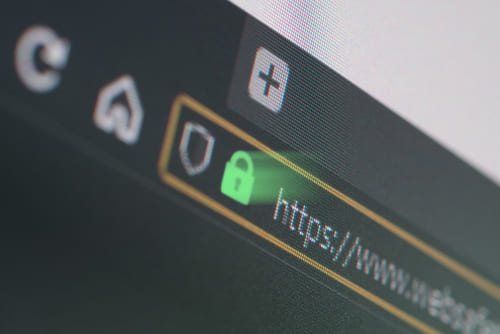What Attorneys and Law Firms Need to Know About Cybersecurity
 In an era when digital data is incredibly valuable, cybersecurity is a crucial concern for any organization. This is especially true for law firms, which need to take steps to protect sensitive information related to their clients and their cases. Robust cybersecurity measures should be used to protect against data breaches, malware, and other cyber threats. To comply with ethical obligations while maintaining the trust and confidence of their clients, law firms may need to address the following issues:
In an era when digital data is incredibly valuable, cybersecurity is a crucial concern for any organization. This is especially true for law firms, which need to take steps to protect sensitive information related to their clients and their cases. Robust cybersecurity measures should be used to protect against data breaches, malware, and other cyber threats. To comply with ethical obligations while maintaining the trust and confidence of their clients, law firms may need to address the following issues:
Website Security
A law firm's website will often serve as a portal where sensitive interactions can occur. Clients who reach out to a firm for legal help will want to make sure the details of their cases are kept confidential. If a website includes functionality that allows clients to make payments, it is important to ensure that financial information is kept secure at all times. The following security best practices should be followed when maintaining an attorney website:
-
Regular updates: A website’s platform and plugins should be kept up-to-date, which will patch vulnerabilities and prevent unauthorized access by hackers.
-
Encryption: SSL certificates should be used to encrypt a website’s data and prevent information submitted by clients from being accessible to the public.
-
Strong passwords and authentication: It is important to implement strong password policies and use options such as multi-factor authentication to add an extra layer of security.
Protecting Client Data
Information about clients and their cases must be kept secure at all times. When handling client files, recording data in case management platforms, and managing financial information, law firms should make sure to follow the correct security procedures. These include:
-
Data encryption: Client data should be encrypted while it is being transmitted and when it is stored in a law firm’s systems. This ensures that even if data is intercepted or accessed, it will be unreadable without the proper decryption keys.
-
Access controls: It is important to limit access to sensitive information to only those who need it for their specific roles. A firm can employ role-based access controls to enforce this principle and keep data secure.
Secure File Transfers
When transferring files, especially those containing privileged information, security cannot be an afterthought. Important considerations when transferring data between computer systems include:
-
Secure transfer tools: A firm should make sure to use tools that offer end-to-end encryption for file transfers. Sensitive documents should never be sent through unsecured email.
-
Verification procedures: The proper steps should be taken to verify the identity of recipients and the integrity of the files received.
Combating Phishing and Other Scams
Phishing attacks are increasingly sophisticated, and they can deceive even the most vigilant people. These scams may be used to gain unauthorized access to a firm’s systems, and they can lead to data breaches in which sensitive information about legal cases or financial data for the firm or its clients may be released. To prevent these issues, a firm can take the following steps:
-
Training and awareness: Staff members should be regularly trained on how to recognize scams. A firm can encourage a culture where it is okay for people to check with each other to verify the legitimacy of communications or requests.
-
Incident response plan: It is important to have a plan in place for responding to cybersecurity incidents. Knowing what to do in the event of an attack can significantly reduce the potential damage from a data breach.
Contact Our Law Firm Website Security Professionals
Building a culture of cybersecurity within a law firm is essential. In addition to using the right tools, it is also important to be aware of potential security issues and encourage vigilance at all levels. Remember, the security of a firm is only as strong as the weakest link in the cybersecurity chain.
At OVC Lawyer Marketing, we ensure that the websites we develop are fully secure. We perform regular software updates and patches to address any security issues that may arise, and we implement SSL certificates and other security measures to protect data submitted by a law firm’s clients. If you have questions about how we can help you implement the proper security measures and prevent hacking, spam, or malware, contact our website development experts at 630-635-8000.






